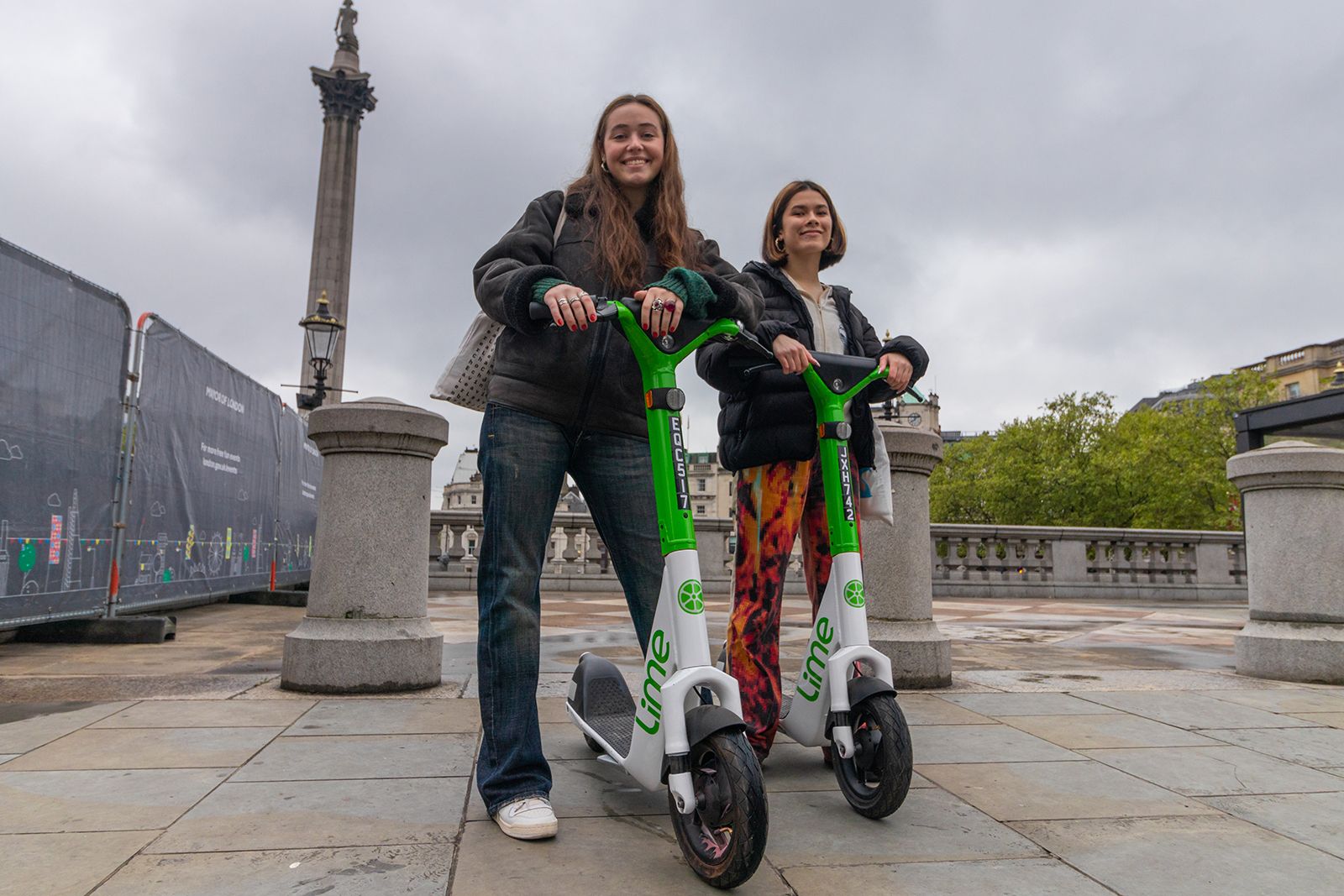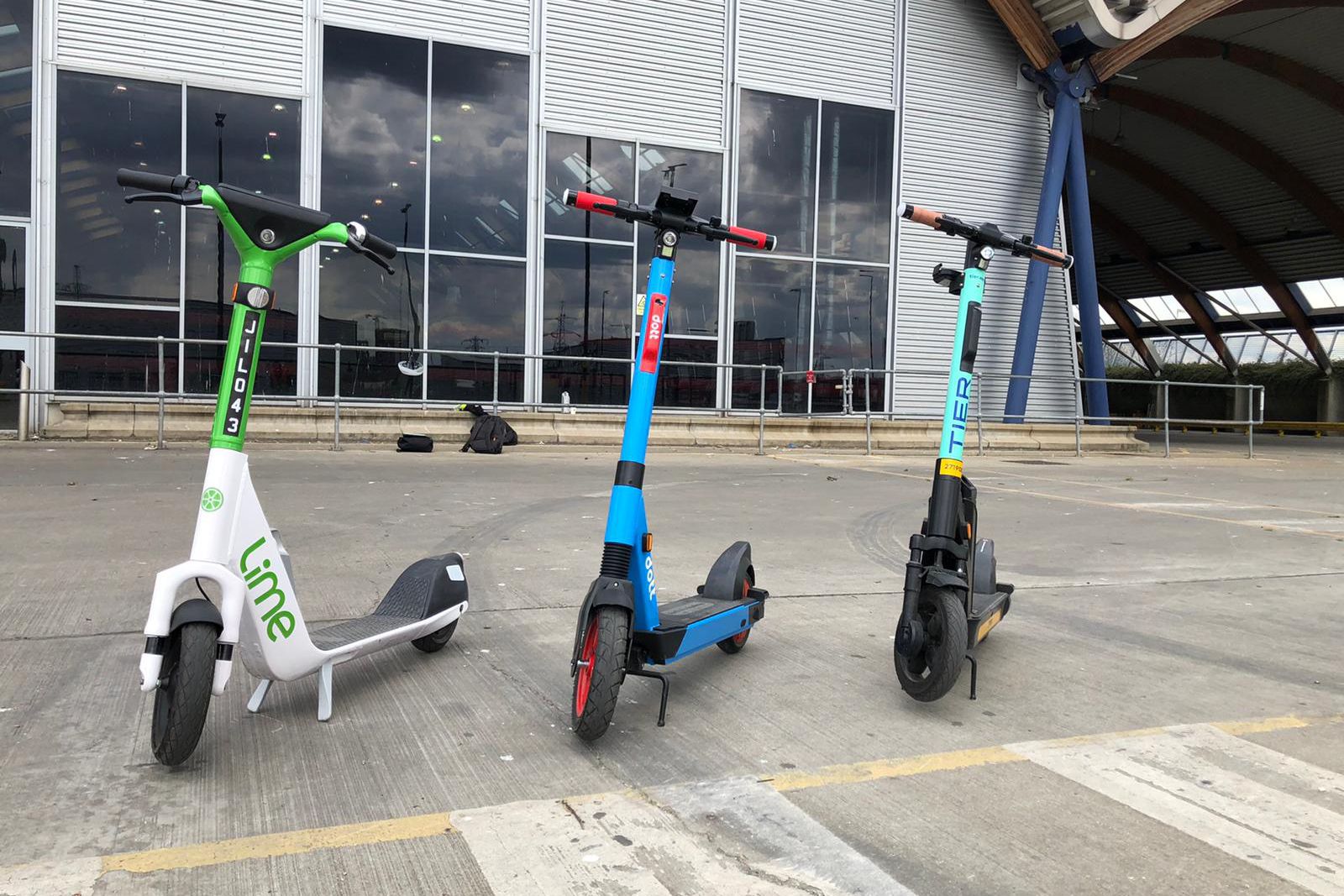Transport for London has kicked off its trial for e-scooter rentals in several locations around the capital.
Londoners can now rent a Lime, Dott or Tier e-scooter and legally travel in several key boroughs: Canary Wharf, Ealing, Hammersmith & Fulham, Kensington & Chelsea and Richmond. Tower Hamletts will act as a "ride through" area, while other boroughs are expected to join throughout the summer.
The main focus of the 12-month trial period is safety, with data shared by the three chosen providers to help "shape the UKs future policy on e-scooters".
During the trial, users will be limited to a maximum speed of 12.5mph. This is lower than the safety standards current set for a national level.
Lights on the front and rear of the e-scooters must stay on during transit, day or night. And, it is mandatory for audible warning systems to be within reach without a user needing to adjust his or her grip on the handlebars.
Each scooter must sport 12-inch wheels - larger than usual - to help navigate London's roads more effectively.
Operators also have their own safety standards in place - for example, first time users must take an e-learning safety course before being able to hire a scooter.
Unlike Los Angeles and other cities where e-scooters are already available for rental, London rentals can only be ridden on roads or in cycle lanes. They are not allowed on pavements or walkways.
Scooters must also only be parked in designated zones, with each participating borough responsible for ensuring this is enforced.
Boroughs are able to specify go slow areas, whereby an e-scooter will automatically limit speed to 8mph.
Pricing takes into account those on lower incomes. Rental costs from £3.25 to £3.40 for a 15-minute ride.
Operators charge a fee to "unlock" an e-scooter plus a per minute fee.
"The rental e-scooter trial has the potential to support our city-wide response to the coronavirus pandemic and boost London’s green recovery," said the chair of the London Council's transport and environment committee, Mayor Philip Glanville.
"It will be important to see how this new service impacts London’s existing transport network and carbon emissions and how inclusive it is of the travel needs of all Londoners - especially those on lower incomes."


